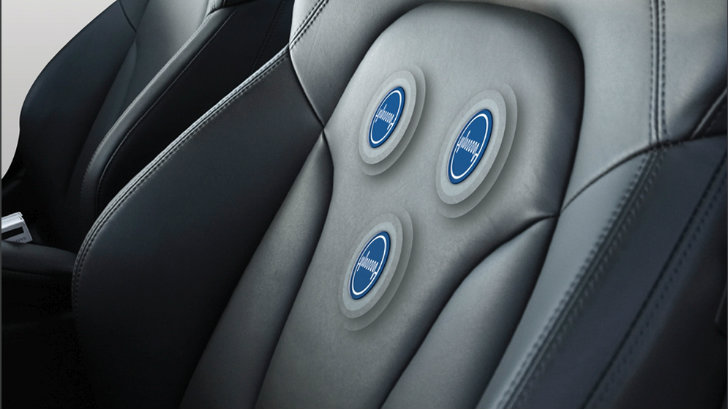You may not have heard of Plessey Semiconductors before, but this company is the mastermind behind the EPIC circuit at the base of a new project from Nottingham Trent University. Simply put, Electric Potential Integrated Circuits fitted to a vehicle's seat can measure heart rate, respiration and other vitals, determining if the driver is too fatigued to drive.
Just like the higher education institution, Plessey Semiconductors is also based in the United Kingdom. As a leading expert in the development and manufacturing of semiconductor products designed for sensing, measurement and control applications, these guys certainly know their stuff and these innovative car seats are the evidence of that. Even though this project is far from an actual user-friendly product, cars of the future may adopt this technology for improved driver safety.
Basically, integrally knitted sensors in the driver's seat will warn the person behind the wheel if he or she is way too weary for driving in a safe and attentive manner. Imagine that with a bit of research and development, the EPIC system might be integrated with the cruise control and lane-keeping functions in order take over if a driver fails to respond to warnings. Now that's the type of safety feature all cars should be provided with, a system that in practice will prove very useful to motorists that are seated too many hours behind the wheel.
In an interview with InnovationInTextiles, Professor Tilak Dias of the university’s Advanced Textile Research Group declared that "Plessey has already demonstrated that cardiac signals can be measured unobtrusively using capacitive sensors mounted within the driver’s seat. The requirement now is to improve the consistency and reliability of the data so that it can be used for the intended purpose. This requires a novel approach to the design of the electrodes, and Nottingham Trent University’s knitted conductive textile technology offers the potential to produce robust electrodes that can be easily incorporated into automotive seats."
Steve Cliffe, Plessey business development director, told the aforementioned publication that "we are extremely excited to be working with Nottingham Trent University on this TSB funded program. For the first time it will be possible to reliably and robustly extract electrophysiology signals using Plessey EPIC sensors in an automotive environment without direct contact with the body." Taking into consideration the infancy of this project, complexity and costs, truck drivers may be the first to experience the benefits of the EPIC vehicle seat, followed by high-end luxury sedans from tech savvy manufacturers such as BMW, Mercedes-Benz or Audi.
Basically, integrally knitted sensors in the driver's seat will warn the person behind the wheel if he or she is way too weary for driving in a safe and attentive manner. Imagine that with a bit of research and development, the EPIC system might be integrated with the cruise control and lane-keeping functions in order take over if a driver fails to respond to warnings. Now that's the type of safety feature all cars should be provided with, a system that in practice will prove very useful to motorists that are seated too many hours behind the wheel.
In an interview with InnovationInTextiles, Professor Tilak Dias of the university’s Advanced Textile Research Group declared that "Plessey has already demonstrated that cardiac signals can be measured unobtrusively using capacitive sensors mounted within the driver’s seat. The requirement now is to improve the consistency and reliability of the data so that it can be used for the intended purpose. This requires a novel approach to the design of the electrodes, and Nottingham Trent University’s knitted conductive textile technology offers the potential to produce robust electrodes that can be easily incorporated into automotive seats."
Steve Cliffe, Plessey business development director, told the aforementioned publication that "we are extremely excited to be working with Nottingham Trent University on this TSB funded program. For the first time it will be possible to reliably and robustly extract electrophysiology signals using Plessey EPIC sensors in an automotive environment without direct contact with the body." Taking into consideration the infancy of this project, complexity and costs, truck drivers may be the first to experience the benefits of the EPIC vehicle seat, followed by high-end luxury sedans from tech savvy manufacturers such as BMW, Mercedes-Benz or Audi.

